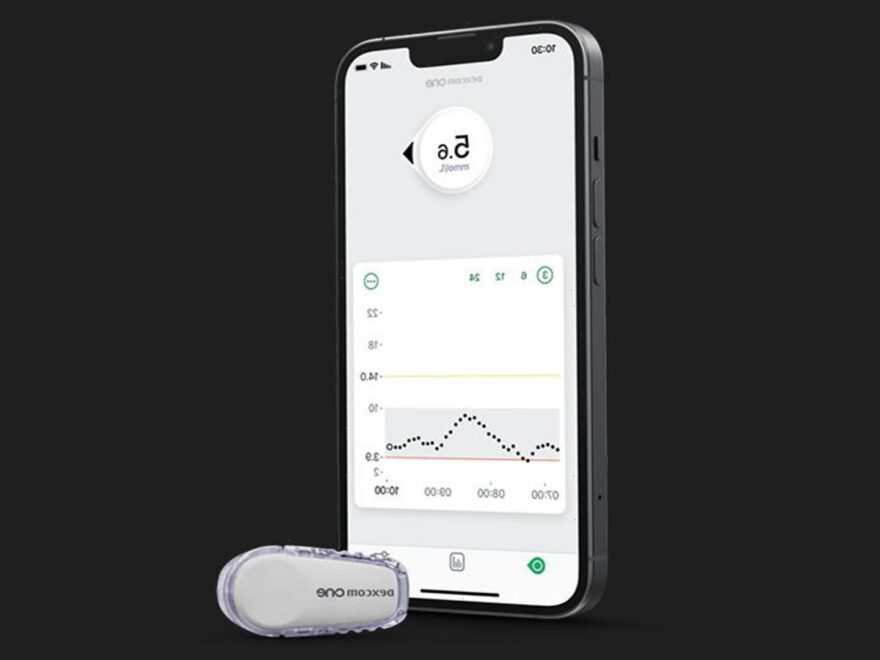MILLIONS of Brits living with diabetes are now eligible for a 'life-changing' device after the NHS secured a new deal.
Glucose monitors that track your blood sugar levels throughout the day will be rolled out through the health service.

Around 4.9 million people in the UK have diabetes – with a further 13.6 million also at risk.
While most people are able to manage their condition, diabetes can be deadly if left untreated and if treated incorrectly.
Diabetics have to monitor their blood sugar levels as this will determine what they can eat and may also influence insulin intake.
The gadgets can be worn on the arm and send information to a mobile app.
Read more on diabetes

Popular drink ‘lowers blood glucose levels & could help prevent diabetes’

Urgent weather warning to millions with common illness – 4 things you must know
This will allow patients to keep track of their glucose levels at all times, without having to scan or take a finger prick test.
The Dexcom ONE Real Time-Continuous Glucose Monitoring system uses a sensor no bigger than a bottle cap that attaches to the arm for up to 10 days.
It is able to measure glucose levels from just under the skin.
NHS patients will get their starter pack which includes information on how to use the device along with a sensor and transmitter.
Most read in Health

RED FLAG
The embarrassing itch that can be an early sign of deadly cancer revealed

I’m a urologist here’s 5 cancer myths you need to know – and when to get help

I’m a doctor and here’s the cleaning TikTok hack you should avoid

How to spot when your cough could be a sign of the UK’s deadliest cancer
The first lot will be given by a GP or hospital staff, and after that, patients will be able to go to the pharmacy for their repeat prescription.
More people will be able to access the device due to a 'cost-effective' deal struck between the NHS and Dexcom.
Before this such monitors were more expensive than flash monitors – which record levels by scanning a sensor.
The rollout is set to help patients manage their condition better.
In turn, the NHS says this could reduce hospitalisations and associated diabetic illnesses which will ultimately ease pressure off the service.
Dr Partha Kar, national speciality advisor for diabetes and obesity said: "This is a huge step forward for Type 1 diabetes care and these monitors will be life-changing for anyone with the illness.
What are the diabetes signs you need to look out for?
Common signs you may have diabetes include:
- going to the toilet a lot, especially at night
- being really thirsty
- feeling more tired than usual
- losing weight without trying to
- genital itching or thrush
- cuts and wounds that take longer to heal
- blurred vision
The symptoms are caused by high levels of glucose remaining in the blood, where it cannot be used as energy.
These signs are common in children and adults alike.
But adults suffering with type 1 diabetes can find it harder to recognise their symptoms.
Diabetes UK's four Ts campaign – Toilet, Thirsty, Tired and Thinner – aims to raise awareness of the key signs.
"Giving them more choice to manage their condition in the most convenient way possible – as well as the best chance at living healthier lives.
“The new deal also delivers on our commitment to get patients the latest cutting-edge medical technology at the best value for taxpayer money – saving the NHS millions over the coming years.”
One patient hailed the technology, and said it will mean he will no longer need to test his bloods 14 times a day.
Andy Lavender, 56, has been living with Type 1 Diabetes since he was two years old.
He said the monitor 'changed his life'.
"I know many people won't test blood glucose in public or in a coffee shop and they will go to the toilet to test, but now they can just glance at the screen.
Read More on The Sun

Four reasons why £650 cost of living payment has NOT hit your bank account

Love Island’s Luke Trotman ‘ENGAGED to girlfriend Chelsea after 3 month romance’
"It's less painful, less stressful and far better to control a condition that can be affected by so many things," he added.
The NHS spends around £10 billion on diabetes care each year.
Source: Read Full Article
